Blaenafon Cheddar Company cheesed off over Big Pit ban
- Published
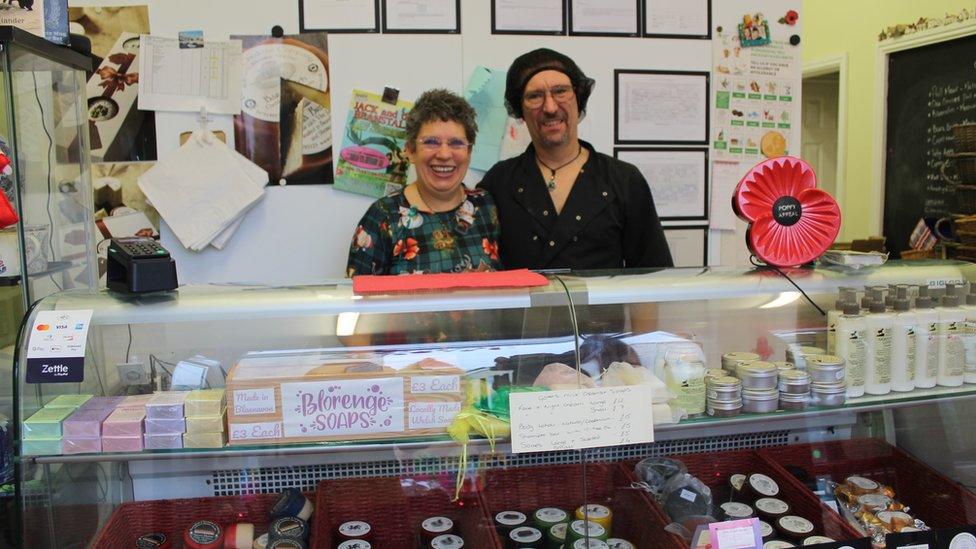
Susan Fiander-Woodhouse and Gerry Woodhouse have just won a bronze award at the International Cheese Awards for their new cheese, The Lion 1868, aged in the cellar of the Lion Hotel
The founders of a cheese company have said a ban on it ageing cheddar in a mine shaft has cost them £60,000.
Earlier this year, National Museum Wales said the Blaenafon Cheddar Company could no longer put its cheese in Big Pit due to health and safety concerns.
But the company said it had been allowed to do this for 15 years.
Owner Susan Fiander-Woodhouse said she was "distraught beyond belief" at the decision.
National Museum Wales said it was dealing with "complex operational issues" because of the pandemic which meant it had to make "difficult business decisions".
The company has been going since 2006 after Mrs Fiander-Woodhouse, who used to work as a development chef for a large firm, decided to go it alone and set up a family business with her husband Gerry - and cheese was the obvious focus.
"I could eat cheese at every meal. Breakfast, dinner and tea," she said.
"And when I go on holiday, the first thing I do is look for local cheese."
Why keep cheese in a mine shaft?
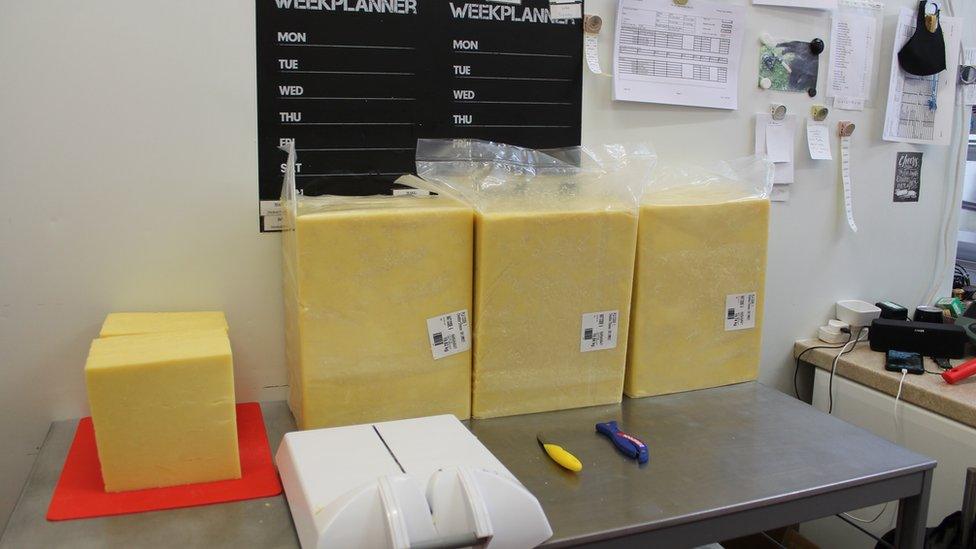
The couple make and sell a range of cheeses, along with Welsh produce
The idea to age cheese in Big Pit came after a lot of research and a desire to "tell a story through the cheese".
"The miners themselves learnt that in a 12-hour shift, the flavour of their food changed underground. So we thought it would be a good place to start and trial some cheese ageing underground," she said.
The cheese, called Pwll Mawr - which means Big Pit in Welsh - went on to win multiple UK and international awards and even got a mention in the Lonely Planet Guide, meaning tourists often turn up at the shop.
But earlier this year, the company was told that it could no longer place the cheese in Big Pit because of "healthy and safety" and that the space was needed for people.
The Fiander-Woodhouses said the decision did not make sense, given they only put six large blocks of cheese into the mine every two weeks.
"I was absolutely heartbroken," said Mrs Fiander-Woodhouse.
"I didn't know which way to turn, I couldn't see the business going forwards. I was distraught beyond belief."
Despite National Museum Wales saying they could still use the name Pwll Mawr, the couple has stopped making it because they believed it was best to walk away.
"Their ethos should be supporting local businesses and they are doing exactly the opposite," said Mrs Fiander-Woodhouse.
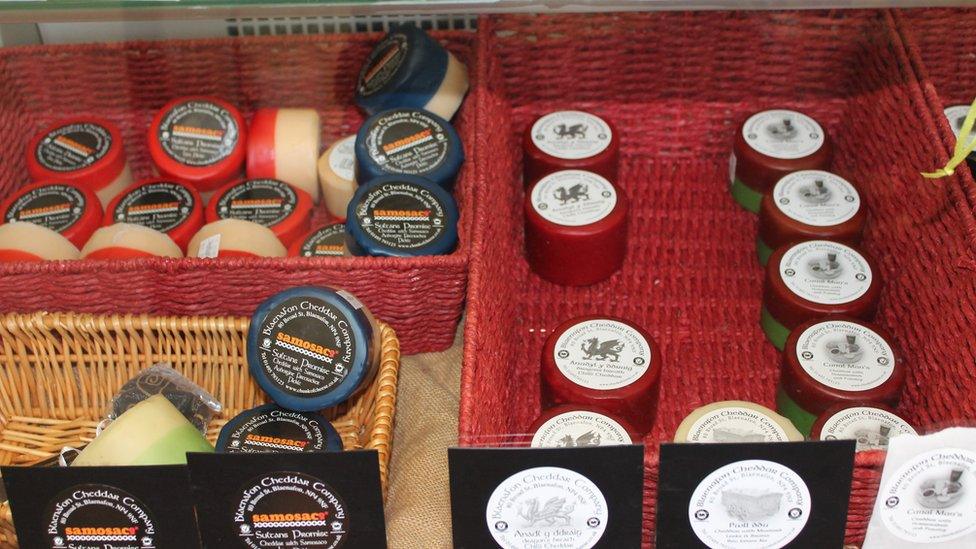
The couple wanted to use the mine shaft to "tell a story through the cheese"
National Museum Wales said there had been an "informal arrangement" for the firm to store cheddar at Big Pit National Coal Museum and the company was made aware of the reasons for the change.
"As a result of Covid-19 we have had to make changes to ensure that we can operate the mine safely," it added.
"We are dealing with complex operational issues that are changing how we work and as a result have had to make difficult business decisions"
Related topics
- Published11 November 2021
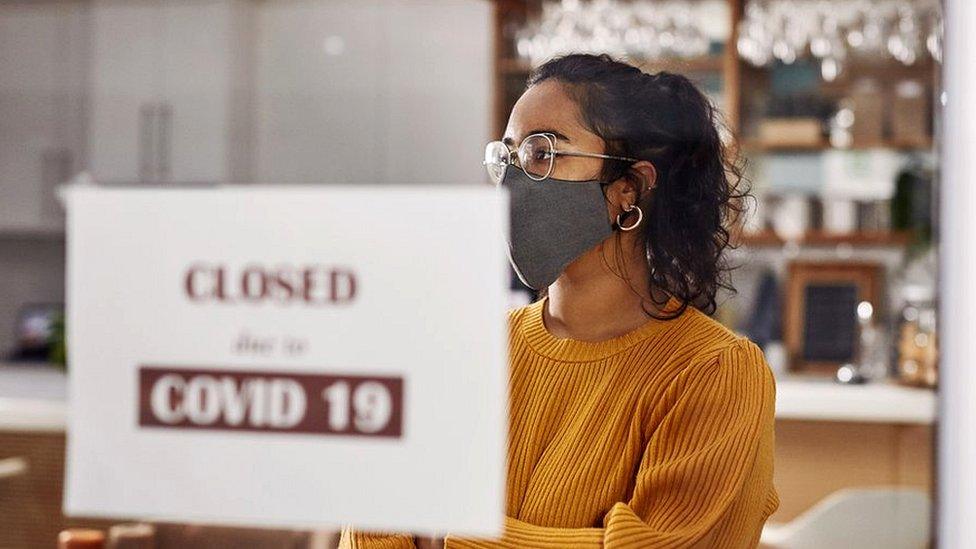
- Published10 February 2021
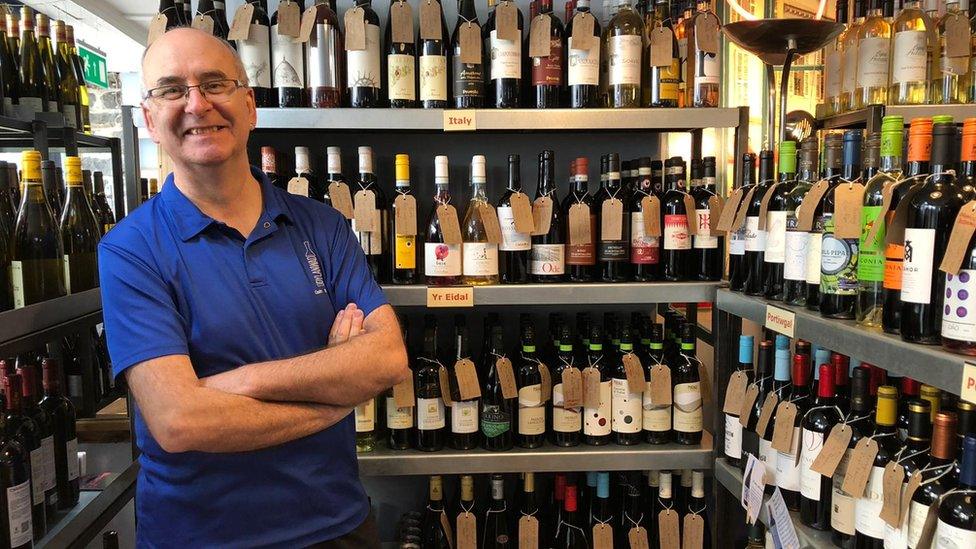
- Published23 November 2021
